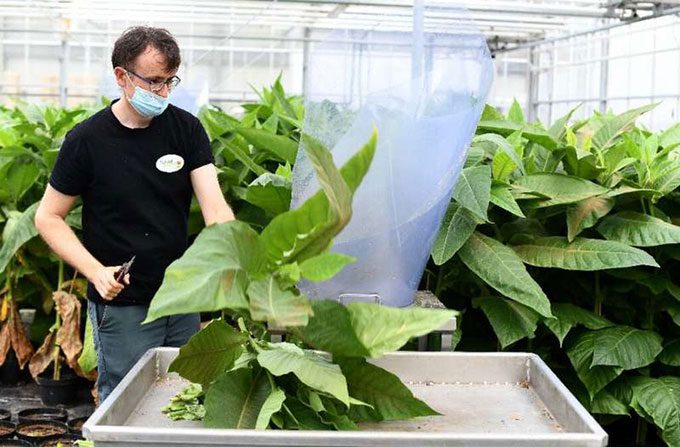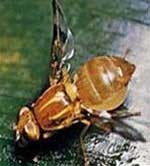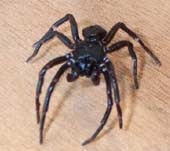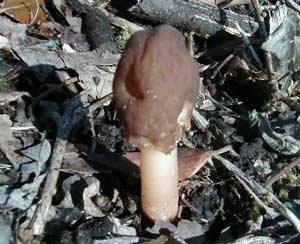Farmers in western France are breeding millions of predatory bugs and tiny wasps to combat pests instead of using pesticides.
Saveol Cooperative is France’s largest tomato producer, with an average yield of 74,000 tons per year. In recent years, the organization has been promoting a pesticide-free farming model in response to growing concerns about the impact of chemicals on humans and the environment.
Insect breeding farm replacing pesticides in France. (Video: AFP).
To achieve this, Saveol has established a predatory insect breeding farm covering up to 4,500m2 outside the town of Brest in the Brittany region of western France. The facility currently breeds two main types of insects: the Macrolophus pygmaeus and trichogramma wasps. These are natural enemies of common pests found on tomato plants, such as aphids and whiteflies.
“The cooperative plans to expand the farm by an additional 1,200m2 this year. This expansion will be used to enhance the breeding of Macrolophus pygmaeus, a species that is in increasing demand,” said Roselyne Souriau, head of Saveol.
At Saveol’s farm, the predatory insects are raised on tobacco plants, which are in the same family as tomatoes and eggplants. They feed on the eggs of caterpillars. During harvest, workers simply cut the tops of the plants and shake them to allow the insects to fall into a large funnel, which are then packaged in plastic boxes. Each week, these plastic boxes containing the predatory insects are shipped to 126 of Saveol’s cultivation facilities.

Workers harvesting Macrolophus pygmaeus on tobacco plants. (Photo: AFP).
Each year, approximately 10 million Macrolophus and 130 million tiny wasps are bred at Saveol. The organization claims to be the only cooperative in Europe with its own predatory insect breeding facility.
“Since 2020, we have completely stopped using any chemical treatment methods,” emphasized Francois Pouliquen, who manages 8 hectares at the Saveur d’Iroise farm within the Saveol cooperative network.
Overall, the use of predatory insects as a replacement for pesticides among French farmers has skyrocketed. According to the Ministry of Agriculture, regulatory agencies approved 330 new insect species as methods for treating harmful pests on crops in the first quarter of this year, a significant increase from 257 in 2015.




















































